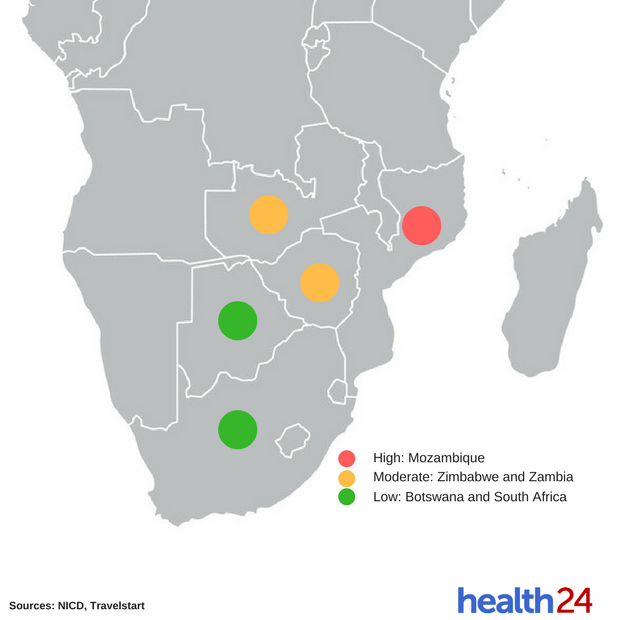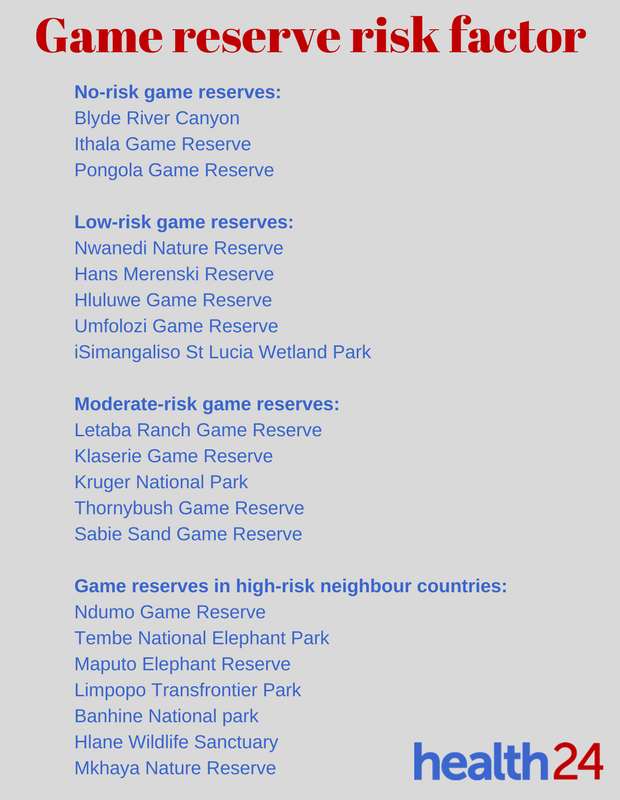Today (25 April 2018) is World Malaria Day. According to the latest statistics from the World Health Organization (WHO), there were 216 million cases of malaria worldwide in 2016, resulting in 445 000 malaria-related deaths.
The National Institute of Communicable Diseases (NICD) stated that with the upcoming long weekend, many South African travellers will be visiting high-risk areas. Many people also visited such areas over the Easter weekend.
What are the symptoms?
According to Health24, the early symptoms of malaria can easily be mistaken for flu. The incubation period varies from person to person, but is usually between two to three weeks. Initial symptoms include:
- Intermittent mild fever
- Headache
- Muscle aches and chills
- General feeling of illness (malaise)
As malaria progresses, the fever may increase and you might experience severe headaches, drowsiness and often, delirium. Malaria can be deadly if not diagnosed and treated quickly.
What is the current malaria situation?
The NICD said in a press release that the total number of cases across the three malaria-endemic provinces (north-eastern Limpopo, eastern Mpumalanga and northern KwaZulu-Natal) has risen in the last three weeks, and some of these are likely to involve travellers returning from neighbouring countries, particularly Botswana and Mozambique.
The map below provides a rough estimate of malaria risk:

Visiting a game reserve? Check to see whether you are at risk of malaria:

Who is at risk?
Anyone who has been in a malaria risk area in the past 10 days to three weeks and who presents with with flu-like symptoms (headache, muscle and joint pains, chills, fever and sweating; vomiting and loss of appetite in young children) should consider malaria as a possibility and seek medical attention, which should include a malaria blood test. This should be repeated if necessary.
I took precautions; should I still be worried?
According to the NICD, travellers should inform healthcare workers if they travelled to a risk area, as this information is often overlooked, delaying diagnosis.
Using anti-mosquito measures (nets, repellents, etc.) and/or prophylactic medicines does not guarantee complete protection against malaria. Many people dine or socialise outdoors in the evening during warm weather and forget to cover bare skin, especially ankles, where mosquitoes tend to bite.
Delayed malaria diagnosis often leads to more severe illness with the danger of serious complications and even death.
Are you travelling to a high-risk area this long weekend?
Discuss any upcoming travelling plans with your doctor, who will be able to prescribe a pre-exposure prophylactic drug to help prevent malaria.
No drug is 100% effective, which means that it’s important to apply other preventative measurements as well:
- Wear clothing with long sleeves and cover your ankles – especially at dawn and dusk, when mosquitoes are most active.
- Use long-lasting insecticide sprays inside homes and buildings.
- Place wire or gauze screens on all doors and windows.
- Use a fan in the room during the night – the breeze seems to discourage mosquitoes.
- Apply mosquito repellent directly to the skin.
- Use mosquito netting over the beds – these can be soaked in certain types of insecticide.
- Try and spend evenings indoors rather than outdoors, where you are much less likely to get bitten.
- Blankets treated with mosquito repellents are also useful.
Image credit: iStock




 Publications
Publications
 Partners
Partners










